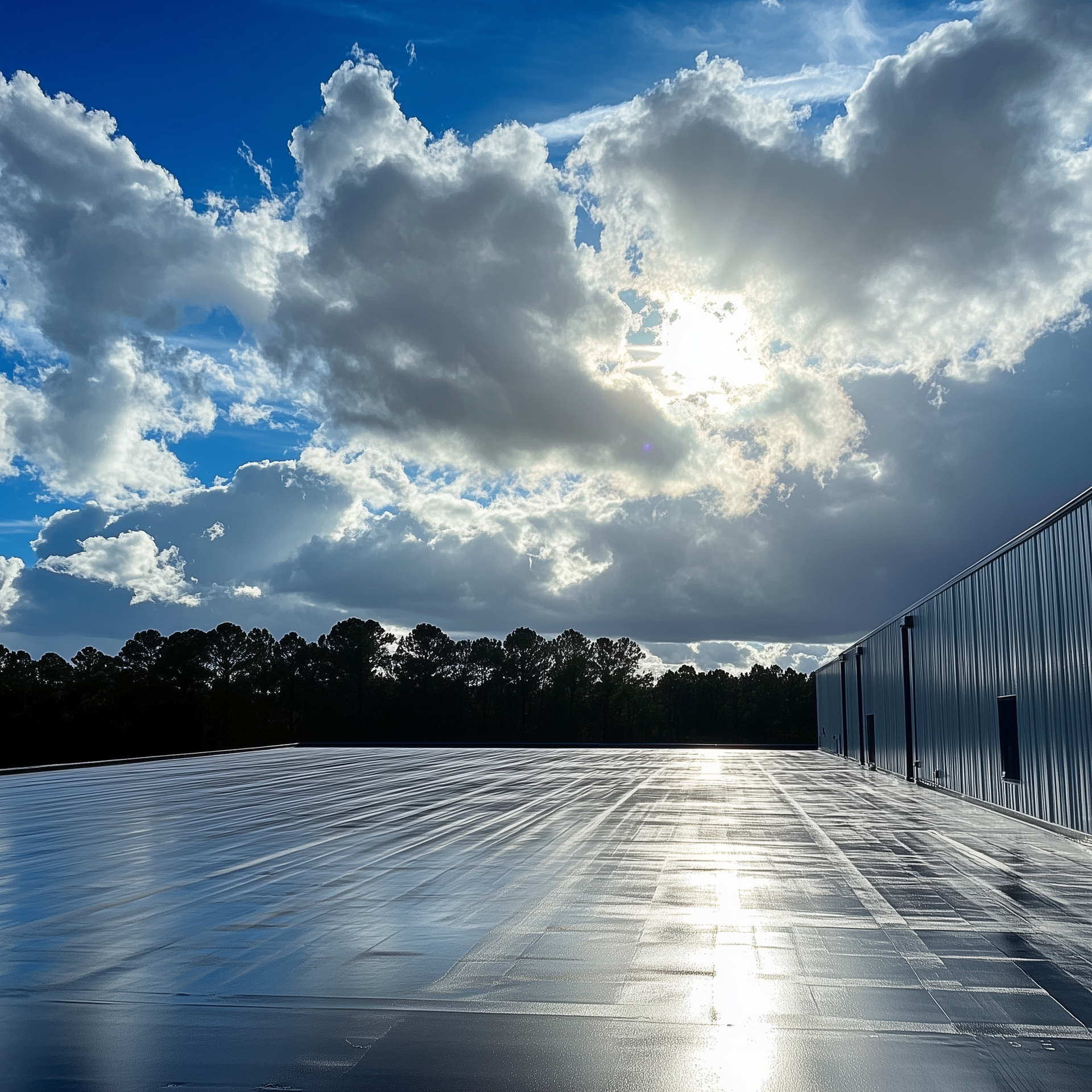Introduction
When it comes to roofing, one of the most critical decisions homeowners and roofing company commercial property owners face is whether to choose flat or pitched roofing. Each type has its own set of advantages and disadvantages, which can significantly affect your building's long-term durability, aesthetics, and maintenance requirements. In this comprehensive guide, we'll delve deep into the intricacies of flat vs pitched roofing, helping you make an informed decision tailored to your unique needs.
Flat vs Pitched Roofing: Choosing the Best Option for Your Needs
When you think about roof types, flat and pitched roofs are likely to come to mind first. Both have their merits and drawbacks; however, understanding them requires a closer examination. So, what exactly distinguishes these two roofing styles? Let’s break it down.

Understanding Flat Roofing
What is Flat Roofing?
Flat roofs are designed with a minimal slope that often appears horizontal. This style is more common in commercial buildings but is gaining traction in residential designs due to its modern aesthetic.
- Materials Used: Common materials include EPDM (ethylene propylene diene monomer), TPO (thermoplastic polyolefin), PVC (polyvinyl chloride), modified bitumen, and built-up roofing systems. Cost-Effective: Because flat roofs generally require fewer materials and labor for installation, they can be more affordable than pitched roofs.
Benefits of Flat Roofing
Easy Installation: Installing flat roofs typically takes less time than pitched roofs. Space Utilization: They offer additional space for HVAC systems or solar panels. Aesthetic Appeal: A modern look that complements contemporary architecture. Accessibility: Easier access for maintenance tasks.Challenges of Flat Roofing
Drainage Issues: Flat roofs may encourage water pooling if not properly installed. Durability Concerns: While many materials can last for decades, they may require more frequent repairs compared to pitched roofs. Weather Vulnerability: They can be susceptible to wind damage and leaks if not adequately maintained.Exploring Pitched Roofing
What is Pitched Roofing?
Pitched roofs are characterized by their steep slope designed primarily for effective water drainage. They are commonly found in residential homes but also have applications in commercial properties.
- Materials Used: Materials like asphalt shingles, metal panels, tiles, and wood shakes are prevalent in pitched roofing projects. Durability: Well-built pitched roofs can endure harsh weather conditions better than flat ones.
Benefits of Pitched Roofing
Excellent Drainage: The steep slopes help prevent water accumulation and snow buildup. Longevity: Typically lasts longer than flat roofs with proper maintenance. Better Insulation: Offers improved energy efficiency through enhanced ventilation.Challenges of Pitched Roofing
Higher Cost: Installation costs may be higher due to increased material use and labor intensity. Complexity of Installation: Requires skilled contractors who understand the intricacies involved.Cost Comparison Between Flat and Pitched Roofing
| Factor | Flat Roofing Cost | Pitched Roofing Cost | |---------------------------|-----------------------------|-------------------------------| | Material Costs | Generally lower | Typically higher | | Installation Time | Shorter | Longer | | Maintenance Costs | More frequent repairs needed | Less frequent |
Choosing the Right Roof Type for Your Home or Business
When deciding between flat vs pitched roofing, consider both immediate needs and long-term goals:
1. Climate Considerations
- In regions prone to heavy rainfall or snow accumulation, a pitched roof may serve better due to its drainage capabilities. Conversely, if your area experiences mild weather with minimal precipitation, a flat roof could suffice.
2. Building Design
- The architectural style should guide your choice; modern homes suit flat roofs while traditional designs often favor pitches.
3. Budget Constraints
- Analyze both initial costs as well as long-term maintenance expenses when calculating your budget.
Roofing Services Offered by Certified Contractors
When it comes time to install or maintain your roof—whether flat or pitched—turning to licensed roofing contractors is crucial:
- Emergency roofing services ensure timely repairs during unexpected situations such as storm damage or leaks. Roof inspection services help identify potential problems before they escalate into costly repairs.
FAQs About Flat vs Pitched Roofing
1. What factors should I consider when choosing between flat and pitched roofing?
Consider climate conditions, building design compatibility, aesthetic preferences, budget constraints, and future maintenance needs.
2. How do I find certified roofing contractors?
Seek out local licensed contractors through online reviews or recommendations from friends and family who have previously hired them.
3. What is the average lifespan of flat versus pitched roofs?
Flat roofs generally last around 10-20 years depending on materials used while pitched roofs can last anywhere from 20-50 years with proper care.

4. Are there special maintenance requirements for each type?
Yes! Flat roofs require regular inspections for pooled water while pitched roofs should be checked for debris accumulation in gutters and valleys.
5. Can I install solar panels on either roof type?
Both types can accommodate solar panels; however, installation methods will differ based on the roof's structure.

6. How much does roof repair cost vary between the two types?
Roof repair costs can fluctuate significantly based on material used; however, repairs tend to be pricier on pitched rooftops due to complexity.
Conclusion
In conclusion, choosing between flat vs pitched roofing ultimately depends on various factors including aesthetics, climate considerations, budgetary restraints, and intended functionality of the space beneath the roof itself. By considering these elements carefully—and consulting with certified roofing contractors—you’ll be equipped to make an informed decision that serves your needs best over time!
Whether you lean towards the contemporary appeal of a flat roof or prefer the traditional charm of a pitched roof design—a well-maintained rooftop will undoubtedly enhance both property value and comfort levels within your home or business premises alike!